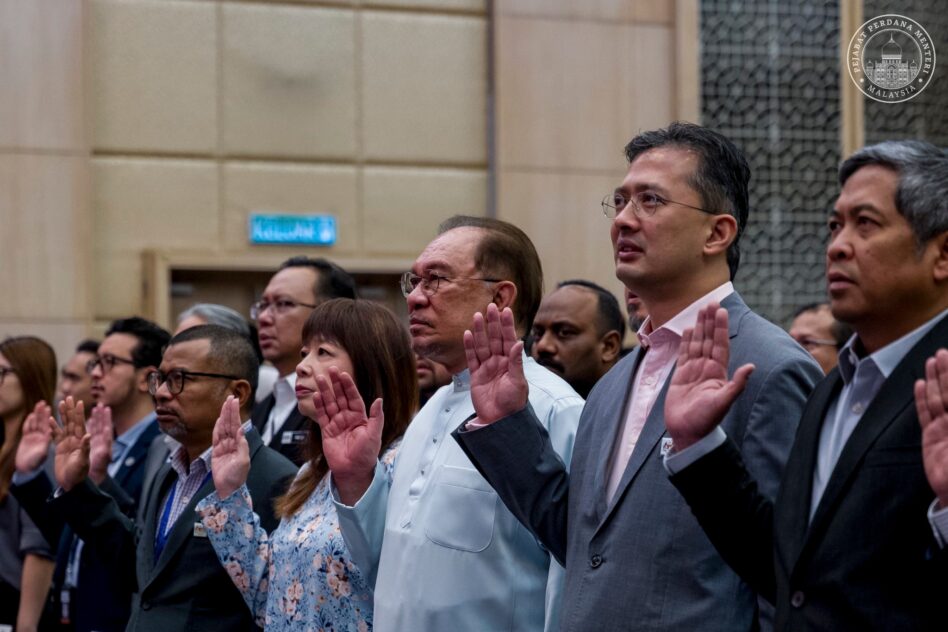By YS Chan
STUDENTS aspiring to work in the public sector must strive to obtain the right paper qualifications to secure government jobs at officer levels for decent salaries and benefits. Their academic qualifications would also determine how far they could advance in their civil service careers.
Qualifications are also a must for licensed professions such as accountants, architects, doctors, engineers and lawyers, in both private and public sectors. In 2019, the civil service was bloated with 1.71 million government employees and efforts have been made to trim the excess fat.
Hence, it would be a grave mistake for jobseekers to rely on the public sector for employment, although government jobs do provide security of tenure and now made even more important by this pandemic, with huge numbers in the private sector out of jobs or incomes reduced.
Naively, most school-leavers continue to study academically, falsely believing that a general diploma or degree would boost their future careers. But paper qualifications are merely testaments of what have been studied, which may have little or no bearing in the world of work.
Many graduates expect to be paid based on their paper qualifications but in the private sector, it is only job performance and conduct that matters.
The aim should be on learning how to perform well at work rather than studying for paper qualifications. Students must first identify the industries or occupations they like, and then start learning what is needed to perform well on the job and carve a successful career.
Being clueless, many graduates continue to apply for whatever positions that are vacant, regardless of industries. Without showing passion or commitment, they will not be hired as most will not bother to work hard, keep learning, or concerned with the success of the business.
Our education system is a dismal failure when it failed to teach students how to develop and excel in their future careers. To perform well at work, it would have to start with having the right attitude, communication skills, industry-relevant knowledge, and job-relevant skills.
Unfortunately, character building is very much lacking in most local schools and universities, and students do not get to learn and master interpersonal communication skills. While national language is important, English is essential for international business, commerce, and trade.
While most Malaysians could speak in several languages or dialects, they are master of none. Communicating face-to-face involves three elements, which are verbal, vocal and visual.
But what is more important is the vocal element that reveals the emotion of the speaker, as the same words or sentence can mean differently, depending on the tone of the voice.
However, the dead giveaway is the visual element, which is more important than verbal and vocal combined. Others perceive us by how we are seen more than what we say, which may not be truthful, whereas our expression, gestures and body language manifest our sentiments.
Academic knowledge, which has been largely outdated, are of little use in industry or current business. Thankfully, there are institutions offering technical and vocational education and training (TVET) where students learn job-relevant skills. Those with the right attitude and are also good in industry-relevant knowledge and communication skills get to run a department or company.
In general, graduates with academic qualifications communicate better but lack job-relevant skills, which TVET graduates have acquired but lose out in communication skills. Hence, both are equally weak as the twin education systems have not been producing holistic graduates.
Furthermore, not many Malaysian graduates are interested in lifelong learning, which could be formal or informal. This is evident when only a few are prepared to pay several hundred ringgit out of pocket to attend a training workshop that could give their flagging career a boost.
Ironically for many of them, their parents have spent many thousands of ringgit for their tertiary education just for a certificate, which is nothing more than a piece of paper if they remained unemployed or underemployed, doing work that could easily be handled by school-leavers.
In fact, graduates would lose out to school-leavers with good examination results but could not afford to continue their studies and had to work to support their families or themselves.
Whether working for organisations or self-employed, many people without a diploma or degree have attained notable success in the private sector. Their accomplishments were due to performance at work or in business, whereas paper qualifications are just historical records.
Ultimately, career success depends on Attitude, Skills, Knowledge, Empowerment and Discipline (ASKED).
Self-discipline will determine whether individuals and communities would survive this pandemic. Too many people continue to gather to chat, dine or shop in packed crowds without practising physical distancing, and made worse by not wearing masks or worn properly.
As for widespread corruption, we were forewarned. In 2002, Universiti Kebangsaan Malaysia (UKM) carried out a significant survey and found that over 30% of the respondents, who were students then, had expressed willingness to accept bribes if they were in power.
In September 2019, Malaysia Anti-Corruption Commission (MACC) deputy chief (prevention) Datuk Shamshun Baharin Mohd Jamil proclaimed the results of the 2002 UKM survey had proven to be prophetic.
He disclosed that 53.2% of the 5,024 offenders nabbed by MACC from 2014 to 2018 were aged 40 and below and were students 17 years earlier. Clearly, our education is far from holistic as few of our educators seek to address the emotional, social and ethical needs of the pupils.
Students must be taught to reflect on their actions and how they impact local and global communities, as well as how to interact with the social and business communities around them, and not just from texts, lectures and academic knowledge within the confines of a campus.
Otherwise, few students are being prepared for the harsh realities of working life with all its challenges and hardships, twists and turns. Those who depend on paper qualifications only are doomed to fail in their careers. – May 16, 2021
YS Chan is Asean Tourism Master Trainer for travel agencies, master trainer for Travel and Tours Enhancement Course and Mesra Malaysia. He is also a tourism and transport industry consultant and writer.
The views expressed are solely of the author and do not necessarily reflect those of Focus Malaysia.









